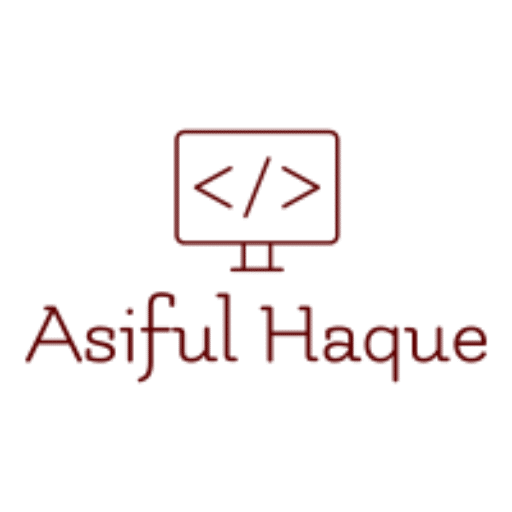Being productive is important for software developers for a number of reasons. In a fast-paced industry like software development, it’s important to be able to deliver high-quality products on time and within budget. Being productive can help you meet these goals and be a valuable asset to your team or organization. Productivity is also important for your personal and professional growth. By being productive, you can take on more responsibilities and challenges, which can help you advance your career. There are a number of ways Software Engineer’s can increase their productivity. Some strategies include:
Setting Clear Goals
Having clear goals and priorities is an important part of being productive as a software engineer. When you know what you are working towards, it is easier to stay focused and motivated.
One way to set clear goals is to use the SMART criteria: Specific, Measurable, Achievable, Relevant, and Time-bound. This means that your goals should be specific and clearly defined, with a clear measure of success. They should also be achievable and relevant to your overall objectives, and have a specific time frame for completion.
Breaking down larger goals into smaller, more manageable tasks can also help you stay focused and on track. This can be done using techniques like the Pomodoro Technique or time boxing, where you set aside specific blocks of time to focus on specific tasks. This can help you stay organized and avoid becoming overwhelmed.
Overall, setting clear goals and breaking them down into smaller tasks can help you stay focused, motivated, and productive as a software engineer.
Use time management techniques
Time management techniques are strategies that can help you stay organized and focused, and improve your productivity. There are many different techniques to choose from, and it’s important to experiment with different approaches to find what works best for you.
One popular time management technique is the Pomodoro Technique, which involves breaking your work into 25-minute blocks, separated by short breaks. This can help you stay focused and avoid burnout.
Another technique is the Eisenhower Matrix, which helps you prioritize tasks based on their importance and urgency. This can help you focus on the most important tasks first and avoid getting bogged down by less important tasks.
Other time management techniques include time boxing, where you set aside specific blocks of time for specific tasks; the Kanban method, which uses visual boards to track and prioritize tasks; and the Getting Things Done (GTD) method, which involves breaking tasks down into actionable steps and organizing them into lists.
Minimize distractions
Distractions can be a major productivity killer, as they can pull you away from your work and make it difficult to stay focused. There are many different types of distractions, including emails, social media notifications, phone calls, and even conversations with coworkers.
To minimize distractions, it’s important to identify the sources of distraction and find ways to minimize or eliminate them. This might involve closing unnecessary browser tabs, turning off your phone or notifications, or finding a quiet workspace.
Some other strategies for minimizing distractions include:
- Creating a to-do list: A to-do list can help you stay organized and focused, as it allows you to prioritize your tasks and track your progress.
- Using productivity tools: There are many tools available that can help you block distracting websites or limit your access to them.
- Setting boundaries: It’s important to communicate with your coworkers and set clear boundaries around when and how you can be interrupted.
- Taking breaks: Scheduling regular breaks can help you rest and recharge, which can improve your productivity.
- Reducing clutter: A cluttered workspace can be a major distraction, so try to keep your work area clean and organized.
Take breaks
Taking breaks is an important part of being productive as a software developer. While it’s important to focus on your work and get things done, it’s also important to take breaks to rest and recharge.
There are a few reasons why taking breaks is important:
- It helps prevent burnout: Working for long periods of time without a break can lead to burnout, which can reduce your productivity and overall well-being. Taking breaks can help you avoid burnout and stay energized.
- It helps you stay focused: Taking breaks can help you refocus and come back to your work with renewed energy and clarity.
- It helps you stay healthy: Taking breaks can help you take care of your physical and mental health, which is important for overall productivity.
To take effective breaks, it’s important to schedule them into your workday and make them a regular part of your routine. This might involve taking a short walk, stretching, or simply stepping away from your computer for a few minutes.
It’s also important to make sure your breaks are actually restful and not just more opportunities for distraction. For example, instead of checking social media or email during your break, you might try meditating, reading a book, or going for a walk.
Collaborate effectively
Collaboration is an important part of software development, as it allows teams to work together to achieve common goals. However, it’s important to collaborate effectively to make the most of this tool.
To collaborate effectively, it’s important to communicate clearly with your team. This might involve setting clear goals and expectations, providing regular updates on your progress, and being open to feedback.
Using tools like project management software can also help you stay organized and on track. These tools can help you track tasks, assign responsibilities, and stay up-to-date on project progress.
Other strategies for collaborating effectively include:
- Setting boundaries: It’s important to communicate with your team and set clear boundaries around when and how you can be interrupted.
- Using the right tools: There are many tools available that can help you collaborate with your team, such as chat apps, video conferencing software, and document sharing platforms.
- Seeking feedback: Asking for feedback from your team can help you identify areas for improvement and build stronger relationships.
- Building trust: Trust is an important part of effective collaboration, so it’s important to be reliable and follow through on your commitments.
Automate tasks
Automating tasks is a way to save time and improve productivity by using tools or scripts to perform repetitive tasks automatically. This can be particularly useful in software development, where there are often many tasks that are time-consuming or error-prone.
To automate tasks, you can use tools like script languages, automation software, or even simple spreadsheet macros. These tools can help you automate tasks like data entry, testing, or deployment, freeing up your time to focus on more important tasks.
It’s important to carefully consider which tasks to automate, as not all tasks are suitable for automation. Tasks that are repetitive, well-defined, and low-risk are often good candidates for automation.
When automating tasks, it’s important to:
- Identify the tasks you want to automate: Look for tasks that are repetitive, time-consuming, or error-prone, as these are often good candidates for automation.
- Choose the right tool: There are many tools available for automating tasks, so it’s important to choose the one that is most appropriate for your needs.
- Test your automation: Make sure to test your automation carefully to ensure it is working correctly and producing the desired results.
- Monitor your automation: It’s important to monitor your automation to ensure it is working correctly and to make any necessary adjustments.

Learn new skills
Learning new skills is an important part of being productive and competitive as a software developer. The field of software development is constantly evolving, and it’s important to keep up with new technologies and techniques to stay current and relevant.
There are many ways to learn new skills as a software developer, including:
- Online courses: There are many online courses and tutorials available that can help you learn new technologies and techniques.
- Books and articles: Reading books and articles about software development can help you learn new concepts and stay up-to-date on industry trends.
- Conferences and workshops: Attending conferences and workshops can be a great way to learn from experts in the field and network with other professionals.
- On-the-job training: Many companies offer training programs or allow employees to work on new technologies as part of their job.
- Practice: Hands-on practice is an important part of learning new skills, so make sure to set aside time to experiment and try out new technologies and techniques.
It’s important to set aside time to learn new skills on a regular basis, as this can help you stay productive and competitive in your field. Make sure to prioritize learning and set specific goals for what you want to learn. This will help you stay motivated and focused as you develop your skills.
Stay organized
Staying organized is an important part of being productive as a software developer. A cluttered workspace can be a major distraction and make it difficult to stay focused on your work.
To stay organized, there are a few strategies you can try:
- Use to-do lists: To-do lists can help you stay organized and focused by allowing you to prioritize tasks and track your progress.
- Use task management software: There are many task management tools available that can help you track tasks, assign responsibilities, and stay up-to-date on project progress.
- Organize your files: A cluttered desktop or disorganized file system can be a major productivity killer, so make sure to keep your files organized and easy to access.
- Keep your workspace clean: A clean and clutter-free workspace can help you stay focused and productive.
- Set aside time for organization: Set aside specific times to review and organize your tasks and files. This can help you stay on top of things and avoid getting overwhelmed.
Stay healthy
Taking care of your physical and mental health is an important part of being productive as a software developer. When you are healthy and well-rested, you are better able to focus on your work and get things done.
Here are a few ways to stay healthy as a software developer:
- Get enough sleep: Getting enough sleep is important for both physical and mental health. Aim for 7-9 hours of sleep per night to help you stay energized and focused.
- Eat well: A healthy diet can help you stay energized and focused. Make sure to eat a variety of fruits, vegetables, and whole grains, and limit your intake of processed and sugary foods.
- Exercise regularly: Exercise can help improve your physical and mental health, so make sure to set aside time for regular physical activity.
- Take breaks: Scheduling regular breaks can help you rest and recharge, which can improve your productivity.
- Seek support: If you are struggling with your mental health, it’s important to seek support from a mental health professional.
Summary
Being productive is important for software developers for a number of reasons. In a fast-paced industry like software development, it’s important to be able to deliver high-quality products on time and within budget. Being productive can help you meet these goals and be a valuable asset to your team or organization. Productivity is also important for your personal and professional growth. By being productive, you can take on more responsibilities and challenges, which can help you advance your career. There are a number of strategies that software developers can use to increase their productivity, including: setting clear goals and priorities, using time management techniques, minimizing distractions, taking breaks, collaborating effectively, automating tasks, learning new skills, staying organized, and staying healthy. By implementing these strategies, software developers can improve their productivity and achieve their goals more effectively.
For more post like this; you may also follow this profile – https://dev.to/asifbuetcse

